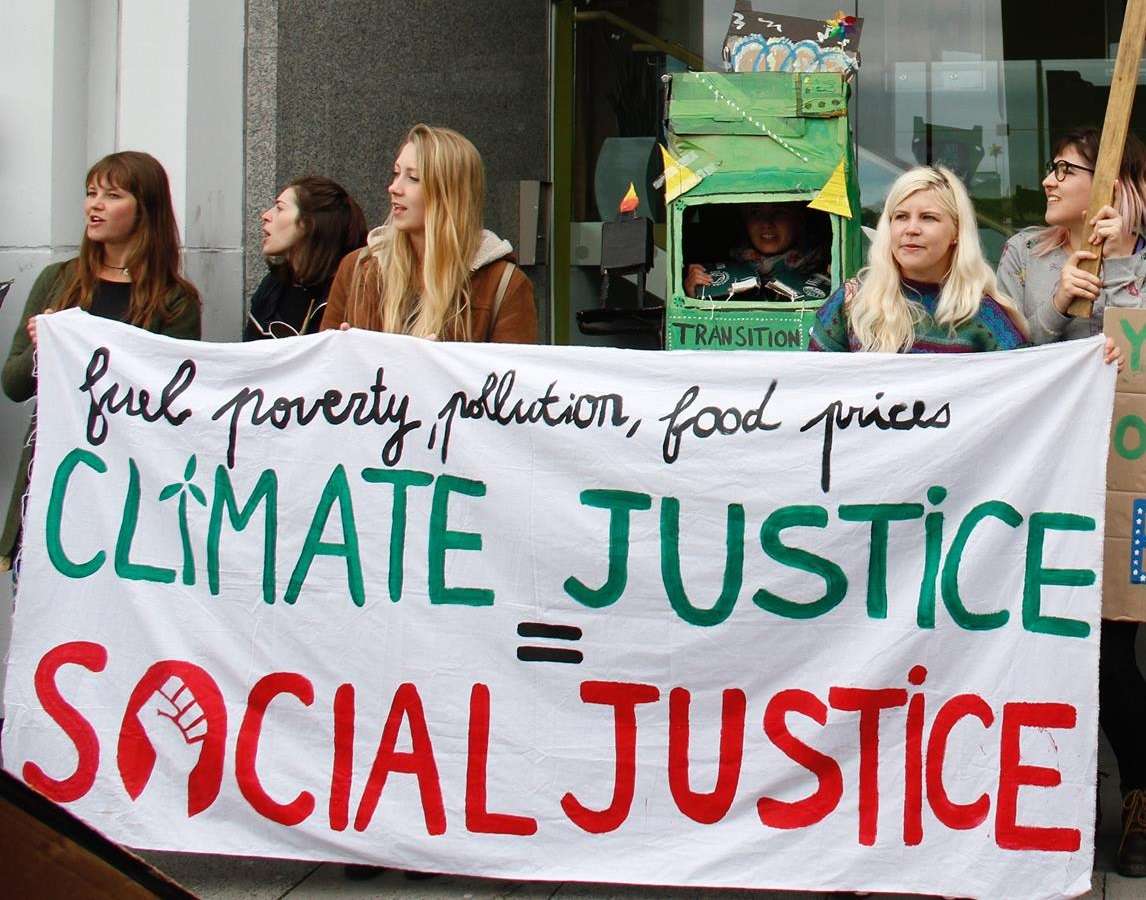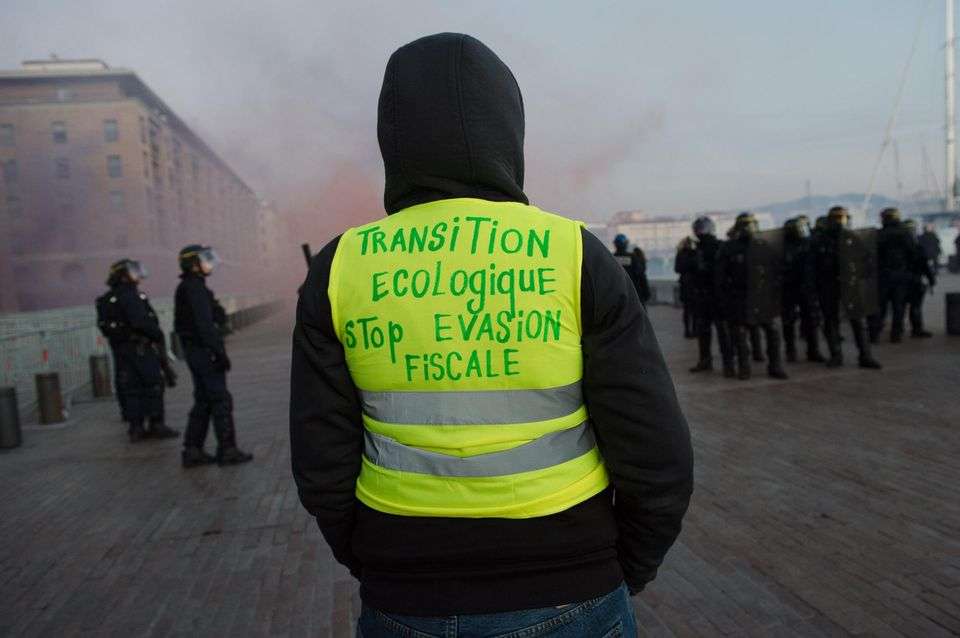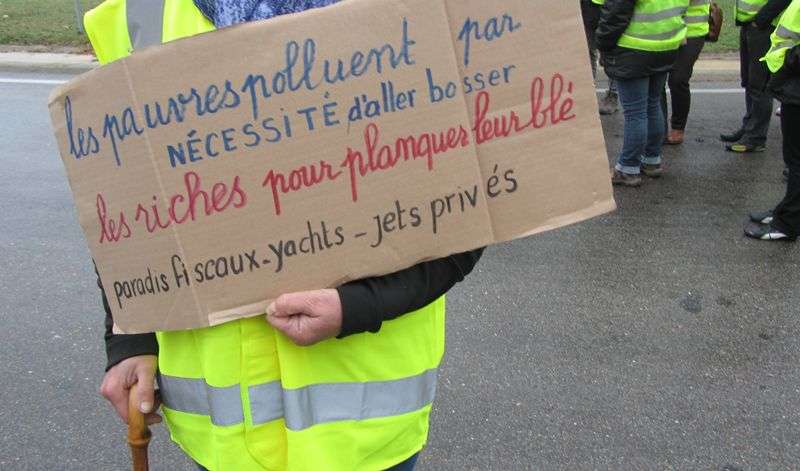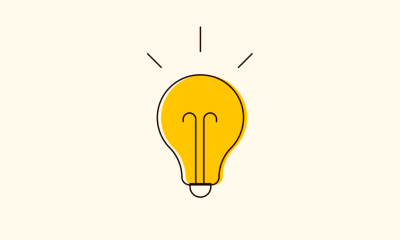News / 19.12.18
Tackling inequality will cool the planet

Why climate action must go hand in hand with social justice to succeed

Our energy system is wasteful and polluting – it is driving a global climate crisis, threatening humanity as a whole. Changing this system will require bold, radical political action.
Our energy model is also unfair. Globally, around a billion people still do not have access to energy. In Europe, millions of people cannot afford to adequately heat or cool their homes.
Energy policy must be environmentally sustainable and socially fair
A double burden is placed on low-income families today. They are more impacted by environmental problems, with studies showing they are more exposed to air pollution, and more vulnerable to rising food prices and energy bills. Low-income families also don’t have the resources to finance the clean energy transition. When you can’t afford your energy bills, you certainly can’t afford to renovate your home.
Governments must ensure the transition to clean energy does not increase the divide between the haves and have-nots. Policies to phase out fossil fuels must not harm those who can least afford to pay for the climate crisis. This policy failure is what ignited the resentment embodied by the Yellow Vest movement, underscoring the fact that a fair transition isn’t a pie-in-the-sky, impossibly radical demand: it is a necessity.

“Ecological transition: stop fiscal evasion”
Regressive carbon taxes and other unjust policies that penalise low-income households living in inefficient homes or having to drive long distances to work are not the way to bring down carbon emissions. Some people cannot afford to keep the lights on in their homes, while those indifferent to energy costs leave the lights on and heat blazing. Industries and airlines, whose emissions make a significant contribution to the climate problem, are permitted to operate unchecked.
It is widely acknowledged that the people suffering most from climate change are in countries which have contributed least to creating it. It must also be recognised that within industrialised countries, those responsible for the climate crisis – and especially those that have actively ignored or denied the problem – are not the ones paying for the transition. Instead, others are paying, with their health, their opportunities and potentially with their lives as people’s personal finances are pushed past the breaking point. Environmentalism must speak to people’s immediate survival needs, and prioritise social justice. Otherwise, it will simply not be accepted.
In Europe: a missed opportunity to enforce the right to energy for all
In May 2017, the Right to Energy coalition united around the recognition that environmental and social justice go hand in hand. As social justice organisations, unions and environmental NGOs, we demand concrete policies to ensure a socially fair and just clean energy transition as a part of the EU’s new energy legislation. Our demands include:
- A ban on disconnections, to effectively ensure the right to energy;
- The supply of a minimum amount of energy for all;
- Massive renovation programmes set in motion across the EU to provide decent, efficient housing for all;
- Specific financial support for low-income households to make homes energy efficient;
- Support for community energy projects, that allow energy ownership and help fight energy poverty on the ground;
- A European definition of energy poverty, to understand and monitor the issue at EU-level.
After two years of negotiations, new EU electricity market rules have now been agreed upon, and will set the course of European energy policy for years to come. Unfortunately, these fall far short of what’s needed to tackle Europe’s climate and social emergency.
New measures include a European definition of energy poverty and new rights afforded to local energy communities. These measures unfortunately do not address one of energy poverty’s root causes, high energy expenditures compared to income levels, and they do not protect the right to energy for all — a right recognised in the European Pillar of Social Rights. Banning disconnections would truly enforce the right to energy, recognising it as central for human dignity and participation in society. Mandatory national action plans were also rejected by Member States — thereby closing the door on holistic, big-picture political action. In the end, decision-makers failed to take bold steps to protect people whose health and well-being are at risk.
Next steps
The new EU energy package is what brought the Right to Energy coalition together a year and a half ago. The coalition will continue to stay active in order to ensure that a socially fair energy transition is a political priority for the new European agenda. We are now turning our attention to the European Parliament elections and will be supporting national movements which have been actively leading the fight to end energy poverty.
Energy poverty is a political choice. Our energy system can be efficient, clean and fair. Decision-makers must seize the opportunity to jointly tackle climate change and social injustice. Our fight continues!
Further reading:
- Climate action must now focus on the global rich and their corporations
- ‘Yellow vests’ spark EU debate about just transition to clean energy

“The poor pollute by necessity to go to work. The rich to hide their money: tax havens, yachts, private jets.”
More News

News / 26.02.25

